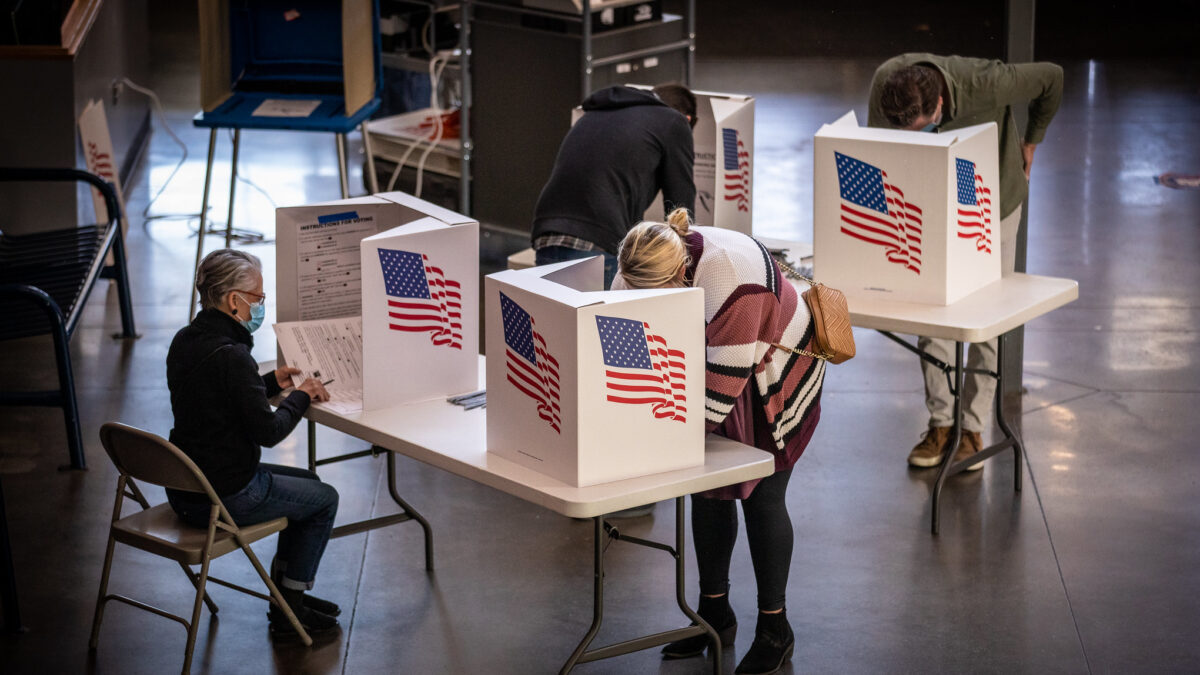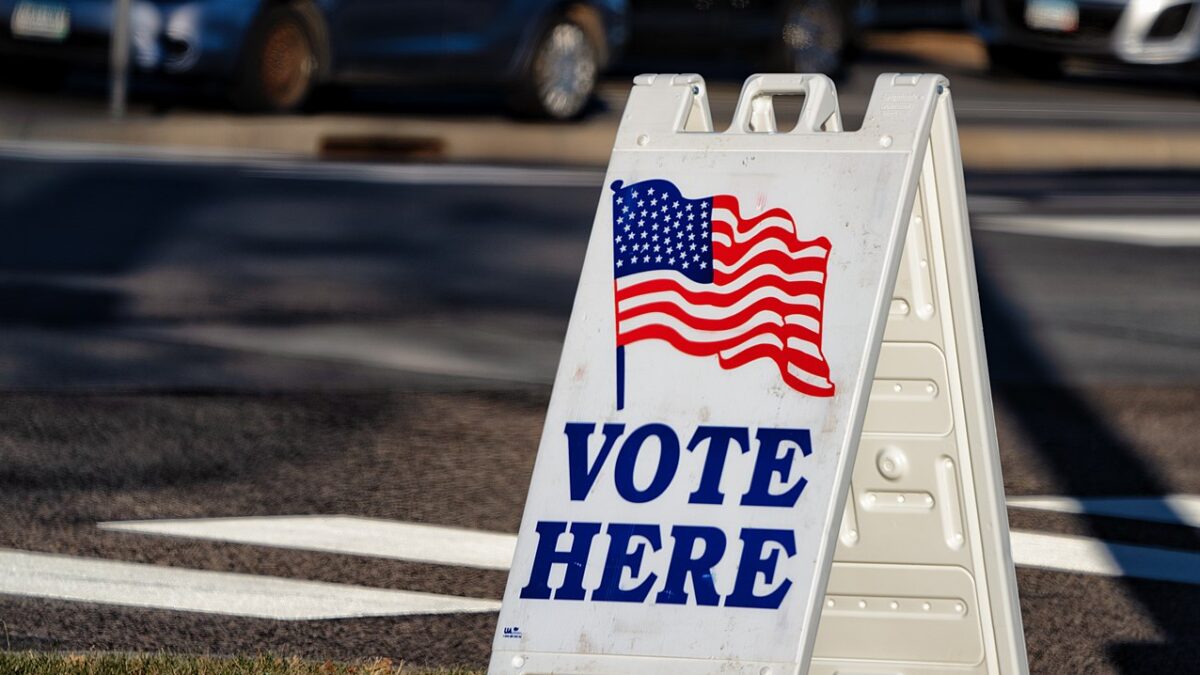The Washington Post and Politico released stories this week that appeared to purposefully equate Republicans’ questioning of questionable elections with violent election-related threats, a tactic used to justify the expansion of the weaponized Department of Justice’s election meddling.
The Post’s Philip Bump wrote about the “ongoing violent threat of election denialism” in a piece published Tuesday, which began with four dramatic anecdotes about threats toward election workers. He pins the blame for these threats very clearly on the fact that “Trump and his allies energetically promote the idea either that fraud occurred or that it might have.”
Troubled people will take Trump’s concerns about election integrity “dangerously seriously,” Bump warned, as he suggested they would have no reason to act out over election results “except that there was a broad effort by Trump and his enablers to present such results as nebulous and suspicious.”
Similarly, in a piece all about “election-related threats,” Politico’s Josh Gerstein wedged in a comment about how a Trump-Biden “rematch could stir up emotions particularly among Americans who falsely believe the 2020 election was stolen.”
Both pieces were inspired by Attorney General Merrick Garland’s comments Monday discussing the DOJ’s Election Threats Task Force, which supposedly exists to tackle an alleged “increase in threats against election workers, officials, and volunteers that followed the 2020 election.”
[READ NEXT: Associated Press Admits New Indictments Are ‘Campaign’ To ‘Deter’ GOP From Questioning Elections]
The message is clear: we can’t have people asking questions about the vulnerabilities in our election administration, because somebody else might use it as an excuse to do something bad.
It’s the same ridiculous rationale the Biden DOJ is using in its lawfare against Trump over his speech on Jan. 6, by the way. The then-president gave a speech in which he alleged the 2020 election was “stolen” and addressed supporters who would “soon be marching over to the Capitol building to peacefully and patriotically make your voices heard.” Because some of those supporters made their way into the Capitol building while Congress was preparing to vote to certify the election, the DOJ has charged Trump with obstruction of an official proceeding.
The purpose of the First Amendment’s free speech clause is to prohibit the criminalization of such speech. Yet leftist agitators want to characterize speech they don’t like as violence itself — from the use of accurate pronouns to legitimate concerns about election administration.
There Are Legitimate Concerns to Be Had Over 2020
Bump insists that those who questioned the results of the 2020 election have not “identified a mechanism by which” the alleged fraud “could have happened in a a practical sense.”
First of all, it doesn’t matter from a First Amendment perspective if allegations of election fraud are true or not — speech doesn’t have to be factually provable to be protected. But second, there were plentiful instances of shady election administration in 2020.
There were ballot issues, such as in Fulton County, Georgia. Just last week, the State Election Board acknowledged that Fulton County scanned more than 3,000 ballots twice during its recount of the 2020 presidential election, and mandated oversight of the county’s future elections by an independent monitor. Board member Janice Johnston also said during the hearing that there are 380,761 ballot images from the 2020 Election Day machine count that are unavailable. The findings came four years after two Republican members of the Fulton County Elections Board did not vote to certify the results due to concerns about how the county was conducting its election.
Another irregularity in the 2020 election was the illegal expansion of ballot drop boxes in places like Wisconsin. Wisconsin’s Supreme Court ruled in 2022 that unelected officials did not have the authority to usurp the state legislature and unilaterally change election laws as the Wisconsin Elections Commission did in 2020. The Wisconsin Elections Commission issued guidance expanding ballot drop boxes, contrary to state law that stipulated absentee ballots “shall be mailed by the elector, or delivered in person, to the municipal clerk.”
Leftist election meddler Marc Elias brought a challenge to the ruling recently after Democrats narrowly flipped the balance of the bench last year.
Then there’s Pennsylvania, where the courts ruled this year that unelected bureaucrats were wrong to accept thousands of incorrectly dated or undated mail ballots.
Or take Arizona, where the number of people who voted via federal ballot — the ballot provided to voters who can’t provide proof of citizenship — was greater than Biden’s margin of victory.
Arizona requires documentary proof of citizenship to register to vote in state elections. A 2018 consent decree forced the state to register voters as “federal only” voters if they failed to prove their citizenship while applying via state registration.
During the 2018 midterm roughly 1,700 people in Arizona — a border state grappling with mass illegal immigration — voted via a federal-only ballot. That number ballooned to 11,600 in 2020, according to AZ Free News. Biden won the state by 10,457 votes.






